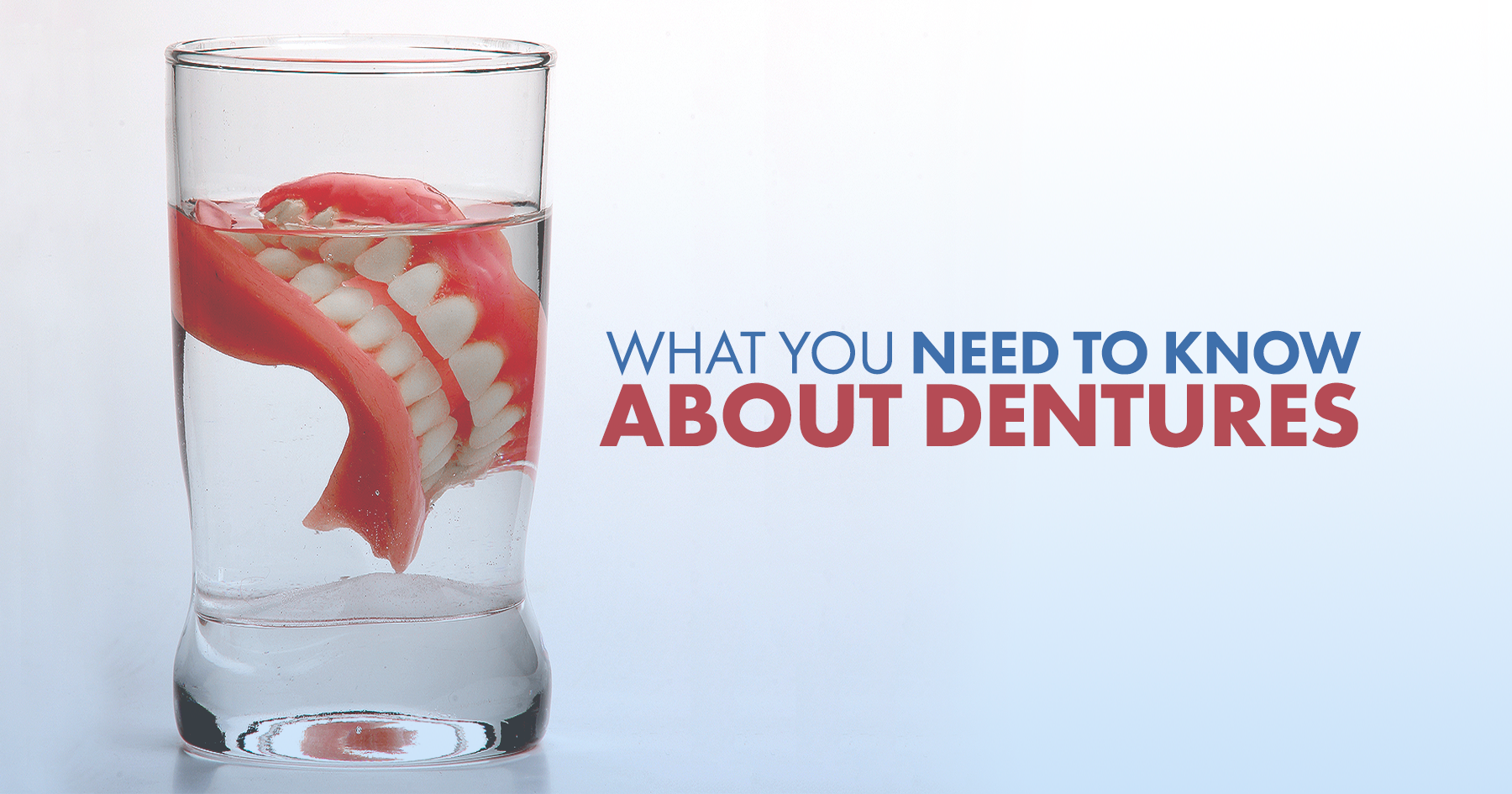
Modern dentistry offers many alternatives to dentures. However, dentures are still an option for many patients. Here is what you should know about dentures before making a decision regarding your oral health.
Dentures are a big change from natural teeth. There is definitely an adjustment period when it comes to dentures.
How They Look and Feel
At first, dentures will not feel like natural teeth. In fact, many patients feel like the dentures are too big for their mouth, they have a “full-mouth” feeling. As you adjust to the dentures, this feeling should go away. It may also take some time for your tongue to get used to the feeling of the denture, but the awkwardness will lessen over time and your dentist or prosthodontist may recommend dental adhesive to help you feel more confident with the fit.
New Sensations
Since dentures are not like your natural teeth, they will feel like a foreign object in your mouth at first. For a while you may produce extra saliva, which is trying to compensate for the strange feeling and object in your mouth. Try sucking on candy or mints to clear away excess saliva. Expect soreness at first as your mouth adjusts to the dentures.
Speaking
Dentures can change the way you speak and the way that you hear yourself speak. The sound of your voice travels through the vibrations in the bones of the jaw and skull. Dentures change that sound and make it seem louder.
You also may experience clicking when you speak. Try speaking more slowly in order to prevent this. Your muscles, lips, cheeks, and tongue are trying to acclimate to the dentures and are trying to get used to them.
Eating
After placement, your brain will be paying more attention to the dentures in your mouth than the food that you are eating. This reaction will make it feel as though food has lost its taste. This will go away after your brain gets used to the dentures.
After first receiving your dentures, eat soft foods and cut your food into small pieces. Also, try to chew your food evenly so that you place equal pressure on your dentures.
Talk to your dentist to find out if dentures are a good option for you. If you do decide on dentures, be prepared for the adjustment.
If you are thinking about getting dentures, here are a few things that you need to know. Check out our blog post to learn about the ins and outs of getting dentures.

